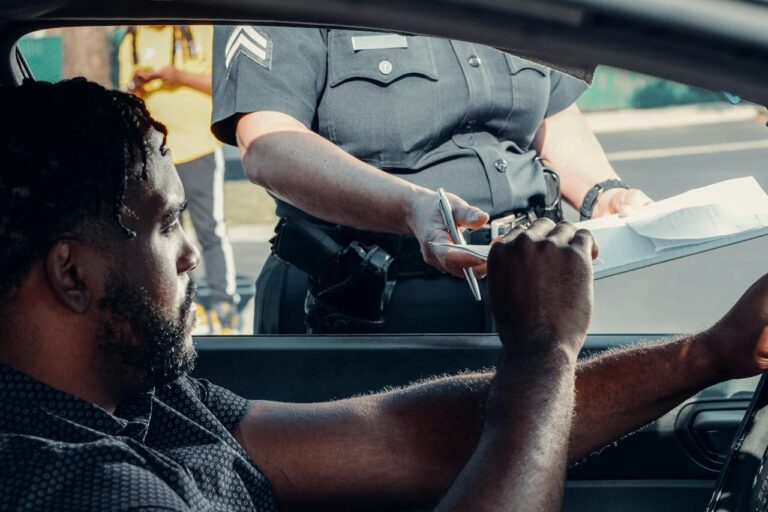Fix-It Tickets FAQ – Compliance, Clearing Violations, and Legal Assistance in California
Fix-it tickets, also known as “correctable violations,” are issued in California when a driver is found operating a vehicle with minor mechanical, equipment, or paperwork problems. These tickets typically require the driver to correct the issue and provide proof of compliance within a specified time frame. However, navigating the process of complying and clearing fix-it tickets can be confusing, especially for those unfamiliar with the procedural intricacies.
In this comprehensive FAQ article, we provide answers to common questions concerning fix-it tickets in California, guiding you through the process of compliance, clearing violations, and seeking professional assistance when necessary. Additionally, we will showcase how the experienced attorneys at Mr. Ticket can support you in addressing fix-it ticket-related concerns, ensuring that your driving record remains clean and violations are resolved efficiently.
What Are Fix-It Tickets, and How Do They Work?
Fix-it tickets, also known as “correctable violations” or “compliance tickets,” are citations issued by law enforcement officers for minor equipment, mechanical, or paperwork infractions. These violations can range from a broken taillight to an expired registration. The primary purpose of fix-it tickets is to encourage drivers to rectify these issues within a specified timeframe, ensuring vehicles on California roads are legally compliant and safe.
Types of Common Fix-It Tickets
There are several types of fix-it tickets in California, which are generally divided into categories based on the nature of the violation:
1. Equipment and Mechanical Violations: These include issues with a vehicle’s lights, horn, mirrors, exhaust system, brakes, or windshield wipers, among others. Examples of specific violations include broken headlights or malfunctioning brake lights.
2. Vehicle Registration Violations: These citations occur when a driver operates a vehicle with an expired, suspended, or incorrect registration. Registration-related fix-it tickets can be issued for a missing or illegible license plate as well.
3. Driver’s License Violations: A fix-it ticket can be issued for not having a valid driver’s license in possession when driving. If the driver can later provide proof of having a valid license at the time of the citation, the violation can be corrected.
4. Insurance Violations: Drivers who fail to provide proof of insurance when requested can receive a fix-it ticket. If the driver can later show they possessed valid insurance at the time of the citation, the violation can be corrected.
The Process of Complying and Clearing Fix-It Tickets
To resolve a fix-it ticket, drivers must follow these general steps:
1. Fix the Issue: Repair or correct the cited violation (e.g., replace a broken taillight or obtain valid registration).
2. Obtain Proof of Correction: Once the infraction is fixed, drivers should obtain proof of correction. This may involve getting an authorized individual (e.g., a law enforcement officer or an employee at the Department of Motor Vehicles (DMV) to sign off on the “Certificate of Correction” portion of the fix-it ticket.
3. Pay the Correctable Violation Fee: Drivers must pay a required administrative fee to the court specified on the fix-it ticket. This fee varies depending on the jurisdiction and nature of the violation but is typically lower than a standard traffic citation fine.
4. Submit the Completed Fix-It Ticket: With the violation corrected and the fee paid, drivers must submit the signed “Certificate of Correction” to the court, either in person, by mail, or online, depending on the court’s requirements.
5. Follow Up: Drivers should follow up with the court to ensure the fix-it ticket has been cleared from their record.
Mistakes to Avoid When Handling Fix-It Tickets
To avoid complications when resolving fix-it tickets, keep the following potential pitfalls in mind:
1. Ignoring the Ticket: Ignoring a fix-it ticket will not make it disappear. Failure to correct the violation and provide proof of compliance within the specified timeframe may result in additional fines, penalties, or even a bench warrant for the driver’s arrest.
2. Incorrect or Incomplete Corrections: Ensure that the repair or correction adequately addresses the violation cited on the ticket. For example, simply taping over a cracked taillight is not an acceptable fix. Additionally, make sure all required information on the “Certificate of Correction” is accurately filled out and signed by an authorized person.
3. Missing the Deadline: Timely compliance is essential. Failing to meet the deadline to provide proof of correction and pay the fee may lead to increased fines, penalties, or even license suspension.
4. Not Following Up: Make sure to follow up with the court to confirm that your fix-it ticket has been cleared from your record. Keep copies of all documentation, including the signed “Certificate of Correction” and receipt of the administrative fee payment.
How Mr. Ticket Can Assist with Fix-It Ticket Concerns
While many fix-it tickets can be resolved without legal assistance, complications may arise in some cases, particularly when facing additional or more severe violations. The experienced attorneys at Mr. Ticket can provide guidance and support in addressing fix-it ticket-related concerns, including:
1. Identifying discrepancies or inaccuracies in the citation, which may warrant dismissal or reduction of the charges.
2. Representing drivers in court should additional hearings or legal proceedings be required.
3. Providing counsel regarding potential negotiation or settlement options, if applicable.
4. Advising clients about the long-term implications of fix-it tickets on their driving record or insurance premiums and how to address these potential consequences.
Ensure a Smooth Fix-It Ticket Resolution with Mr. Ticket
Fix-it tickets can be a stressful and inconvenient experience for California drivers. By understanding the types of fix-it tickets, the process of compliance and clearing violations, and avoiding common mistakes, you can protect your driving privileges and maintain a clean driving record. If you encounter complications or need legal guidance related to fix-it tickets, our experienced traffic ticket attorneys in California are ready to assist. With our extensive knowledge of California traffic laws and dedication to client success, the Mr. Ticket team can help you navigate even the most challenging fix-it ticket situations. Don’t allow legal complications to disrupt your life—contact Mr. Ticket today for a consultation and gain peace of mind knowing your fix-it ticket concerns are being handled by industry experts.








